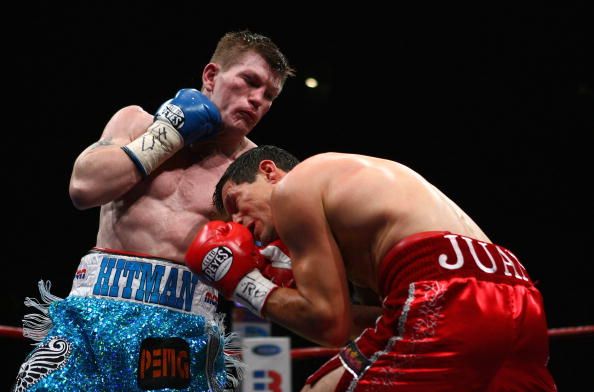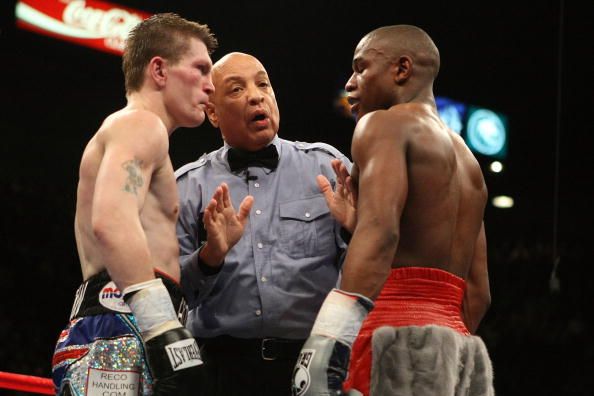Ricky Hatton has opened up on his battle with depression since retiring in a powerful interview.
Very few British boxers have come close to matching the popularity of Hatton.
The Manchester native was followed to Las Vegas by thousands of supporters for his superfights against Floyd Mayweather Jr. and Manny Pacquiao in 2007 and 2009 respectively.
And while he lost both bouts, he remained for many the people’s champion and a much-loved figure.
However, since retiring in 2012 with a record of 45 wins, 32 by KO and three losses, Hatton has suffered from depression.
The former world light-welterweight and welterweight champion of the world has detailed his troubles since in an interview with the BBC.
“I tried to kill myself several times,” the 38-year-old said.
“I used to go to the pub, come back, take the knife out and sit there in the dark crying hysterically.
“There were times when I hadn’t had a drink for days and I’d still come home and if something went through my mind I’d start pondering something. It was the same outcome whether I was having a drink or wasn’t having a drink.
“But in the end I thought I’ll end up drinking myself to death because I was so miserable.
“I was coming off the rails with my drinking and that led to drugs. It was like a runaway train.”
Depression is common among former professional athletes, and Hatton said that he thinks “more should be done for boxers” who suffer with the mental health condition.
“Footballers have an agent who looks out for them and a football club that gets behind them,” Hatton said.
“The Football Association and the Professional Footballers’ Association (PFA) can also be there.
“Whereas boxers, it’s like once your time has gone it’s ‘on your way’ and move on to the next champion coming through.
“The thing is with boxers, we don’t come from Cambridge and places like that, we come from council estates. So in boxing it’s very, very hard. If boxing had a professional boxing association or something like that, I think it would be a better place.
“It seems to be happening more with boxers. It’s an individual sport so you get in the ring on your own and then when you retire you tend to spend the rest of your life on your own.”
If you have been affected by any of the issues raised in the interview, you can contact the Samaritans on 116 123 or visit their website for more information by clicking here.








































